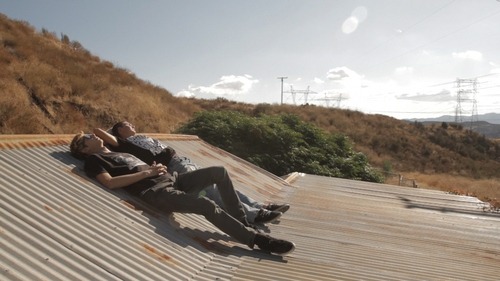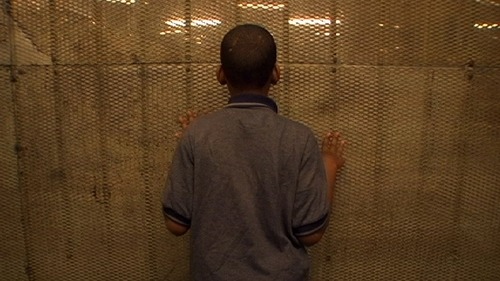Only the Young
The documentary has been going through a lot of changes over the past 10 years. Technology, like affordable DSLRs that are capable of creating beautiful images in very low-light situations, has seen the documentary genre itself change.
Two of the documentaries that we’re screening during the festival, Only the Young and Tchoupitoulas, are perfect examples of the kind of filmmaking that, until fairly recently, has been impossible.
Only the Young is a beautiful and sensitive portrait of young boredom. Set in an arid part of California, the teenage subjects of the film pass time by skateboarding on just about any surface they can find while entertaining a flurry of crushes. There isn’t some grand dramatic story, just a bracingly honest look at being young. At times, it seems amazing that the teenagers feel so comfortable talking about their lives to the filmmaker. It allows you into their small world in a way that few films manage to. The result is a story about young lives that really hits close to home as you remember what it was like to be a teenager.

Its simplicity and beauty are striking – to put it mildly – and the emotions of the film are amplified in the same way everything seems to be amplified when you’re that age. The film may only run for 70 minutes, but it stays with you long after the credits roll.
Tchoupitoulas is similar, but focuses more on the discovery and wonder of youth. The main subject of the film, an African-American boy who looks to be about 10 years old, sneaks out with his two brothers to wander the street of Tchoupitoulas, a pleasure strip in New Orleans. The camera simply follows – in a stark verite style – the boys as they witness things they’re far too young to see. The street is flooded with musicians, drag queens, oysters and pizza. The filmmakers never seem to interfere with the boys’ journey, and they never seem to be very aware of the cameras. Which, of course, makes sense given the content of the streets.

The film is experimental, with footage of the street cut up with short off-camera interviews of the youngest boy ruminating in a way that only a 10-year-old could. It’s a challenging film that really pushes what a documentary can be, and in a way, is the essence of what a documentary is: a document of an experience.
Both of these films are great examples of the changes technology has brought to the world of filmmaking, and we hope you enjoy them as much as we do!
-Dan Hartley, CCFF Programming Director


